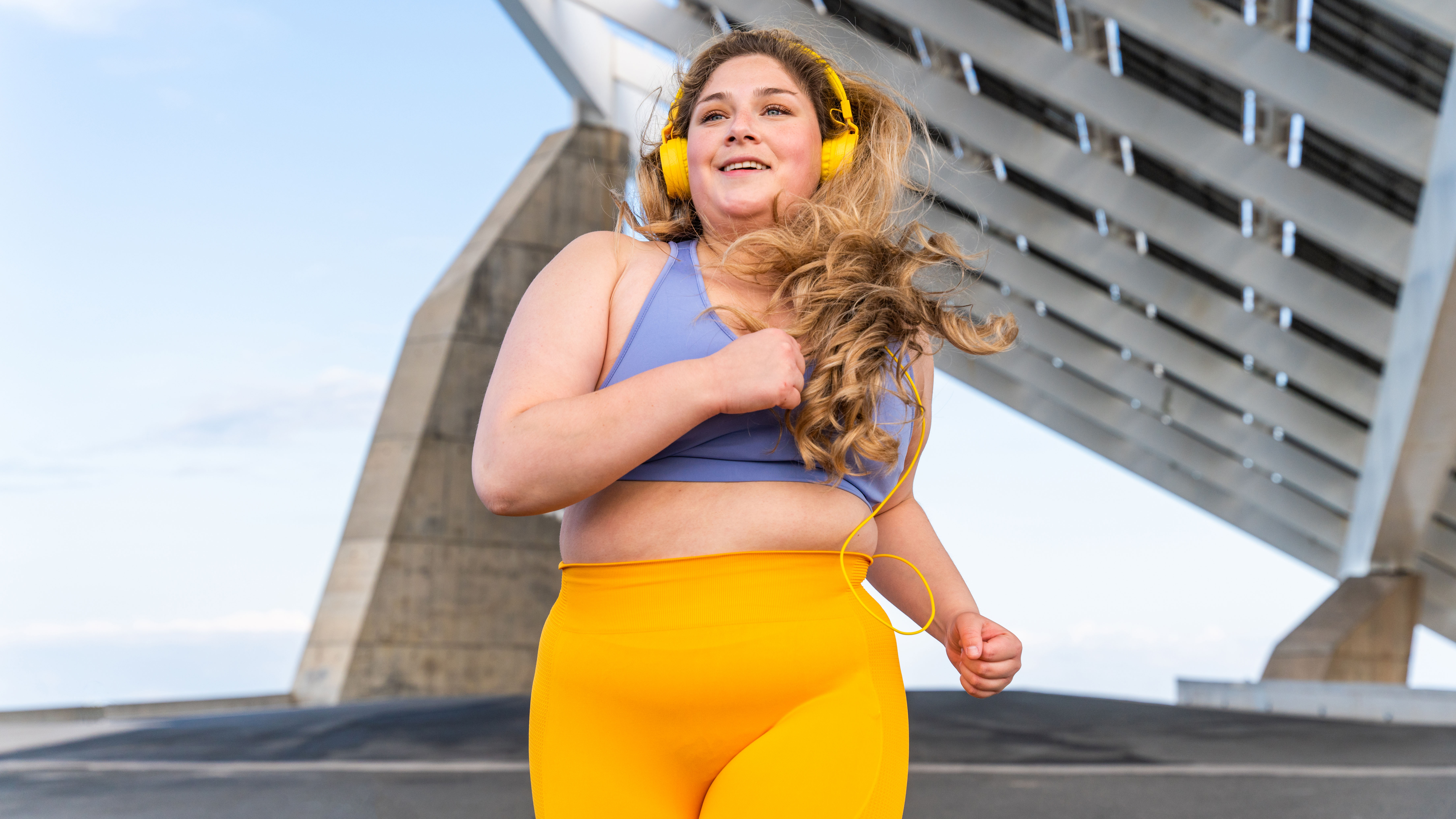Can music really influence your workout?
What psychology tells us about listening to tunes — can music really influence your workout?

Get the world’s most fascinating discoveries delivered straight to your inbox.
You are now subscribed
Your newsletter sign-up was successful
Want to add more newsletters?

Delivered Daily
Daily Newsletter
Sign up for the latest discoveries, groundbreaking research and fascinating breakthroughs that impact you and the wider world direct to your inbox.

Once a week
Life's Little Mysteries
Feed your curiosity with an exclusive mystery every week, solved with science and delivered direct to your inbox before it's seen anywhere else.

Once a week
How It Works
Sign up to our free science & technology newsletter for your weekly fix of fascinating articles, quick quizzes, amazing images, and more

Delivered daily
Space.com Newsletter
Breaking space news, the latest updates on rocket launches, skywatching events and more!

Once a month
Watch This Space
Sign up to our monthly entertainment newsletter to keep up with all our coverage of the latest sci-fi and space movies, tv shows, games and books.

Once a week
Night Sky This Week
Discover this week's must-see night sky events, moon phases, and stunning astrophotos. Sign up for our skywatching newsletter and explore the universe with us!
Join the club
Get full access to premium articles, exclusive features and a growing list of member rewards.
There is a wealth of research on the impact of music on exercise — but can music really influence your workout? In other words, is there any great benefit in grabbing a pair of the best running headphones if you want to improve your performance? Well, some of the results are quite remarkable.
Over the past two decades, scientists have been busy investigating the influence of music on workout performance and they have found considerable benefits.
Music can positively affect your mood, decrease perceived effort, increase endurance and make athletes more efficient when it synchronizes with their movements. While listening to music, people have been able to run farther, cycle for longer and swim faster.
And yet there are caveats. Much depends on the level of an athlete's ability, the length of a workout and the intensity of the exercise, but there are many gains to be had from listening to music.
One of the world's leading experts, Professor Costas Karageorghis, author of Applying Music in Exercise and Sport, tells us just what music does when we exercise.

Professor Costas Karageorghis is an expert in sport and exercise psychology. He is a Chartered Sport and Exercise Psychologist (British Psychological Society), Chartered Scientist (Science Council) and Fellow of the British Association of Sport and Exercise Sciences. His scientific output includes over 200 scholarly articles, 14 chapters in edited texts and the text Inside Sport Psychology (Human Kinetics), which has been translated into Polish, Turkish and Farsi. He has recently published a second text, Applying Music in Exercise and Sport (Human Kinetics), as well as an associated study guide.
How does music influence mood during a workout?
Prof Karageorghis and his team at Brunel University London have spent years monitoring the brain's response to music while people exercise. One of their studies published in Psychology of Sport and Exercise, found that listening to music led to a 28 per cent increase in enjoyment in physical activity, compared with listening to nothing.
Enjoyment was also 13 per cent higher for participants who listened to music, compared with those who listened to a podcast.
Get the world’s most fascinating discoveries delivered straight to your inbox.
Meanwhile, another study showed participants who listened to music they deemed "pleasing" had higher levels of serotonin as reported in the International Journal of Qualitative Studies on Health and Well-being. That’s the hormone which promotes positive feelings.

It soon becomes clear that, by boosting pleasure, music can reduce perceived effort and make a workout feel less tough. What’s more, the research in this area is expansive, with more than 100 studies showing on average a 10% reduction in perceived exertion in low to moderate exercise when listening to music.
But what tunes work best? Well, Prof Karageorghis says listening to "any type of music" will reduce perceived effort whether you like the music or not.
"Music that is arbitrarily selected will reduce perceived exertion by about 8% in low to moderate intensities of exercise. Beyond the anaerobic threshold, music is generally ineffective, but well-selected music can reduce perceived exertion by 12%," he adds.
But once someone is exercising at beyond 75% of their VO2 maximum during a high intensity workout music is "relatively ineffectual" in influencing perceptions of exertion.
Can music actually improve my performance?
As outlined in a recent review in the Psychological Bulletin journal, research suggests that music helps improve sporting performance. One explanation for this is that music can help to distract from pain and fatigue which enables people to work out for longer.
According to Karageorghis, the benefits of distraction are most prominent during low to moderate intensity exercise. When you’re really straining in a workout, music is unlikely to distract from the fatigue. It can impact how you respond to that tiredness, though — it can actually motivate you to keep going.

As well as distraction, there’s another way in which music affects our sporting performance: by synchronizing with a beat.
"When you apply music in the synchronous mode where people consciously synchronize their movement pattern to the music that can have an ergogenic or work enhancing effect of 10 to 15%,” says Karageorghis.
The key to listening to music, then, is to synchronise your movements to the beat in order to enhance energy efficiency. In Karageorghis’s studies, this metronome effect has reduced oxygen intake by up to seven percent. But the professor points out that these tests were conducted in sterile laboratory conditions where there is little else to distract participants; real world results may differ.
What tempo should I listen to?
If you are using music to enhance your performance rather than simply to distract, then it is imperative to select tunes with a tempo that corresponds to your desired movement rate. But rather than choosing something with a very fast beat, Karageorghis recommends going for something with a beat that’s at exactly half of your desired pace.
"If for example, you want to run at a very high-stride frequency of say 180 strides per minute, what you might do is select a piece of music that is rhythmically quite busy, that has a total of 90 beats-per-minute and you would take a stride cycle on each [half] beat" he says. He offers this advice because listening to music with more than 150 beats per minute can be very difficult to process, which makes it hard to maintain synchronicity.

And if you are looking to put on music for motivation rather than synchronisation the research suggests that 120 to 140 beats per minute is the "sweet spot".
"So 120 would be [suitable for] a very low intensity exercise activity, such as walking and 140 would be suitable for a very high intensity mode of exercise, such as, for example, running at 80% of aerobic capacity," explains Karageorghis.
What about listening to podcasts and other audio?
Karageorghis says that studies have shown that podcasts and audio books will still immerse the listener and reduce perceived exertion. But it does now allow for the benefits of synchronisation and any lyrical affirmations. It also depends on the intensity of the workout.
"If you think about the information processing that is going into, for example, keeping up with a podcast and the key messages that it contains, that can really detract from exercising or working out at a very high intensity. It is probably better to do it in silence, or with some simple and beat-heavy music," suggests Karageorghis.
Lily Canter is a freelance money, health and lifestyle journalist with more than 20 years' experience. She writes about fitness for Fit+Well, Tom's Guide, T3, South China Morning Post, Runner's World and Trail Running magazine. She focuses on personal finance for Yahoo! Finance UK, Metro, The Guardian, and loveMONEY. In her spare time she is an ultra-runner, canicrosser and UK Athletics running coach. She also co-hosts the award-winning podcast Freelancing for Journalists.
 Live Science Plus
Live Science Plus











